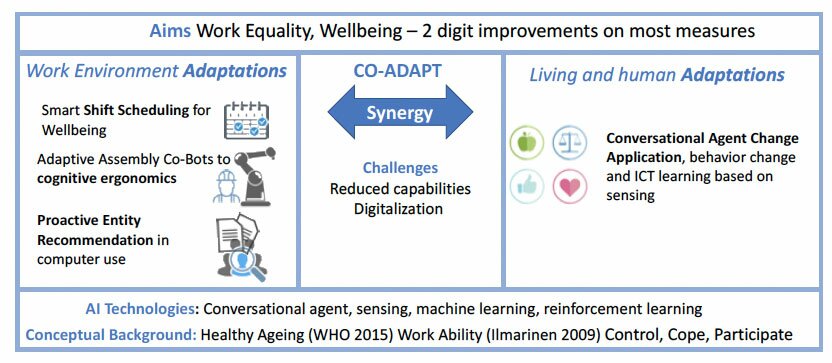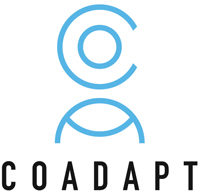Advancement over State of the Art in Research
Smart Systems for Active, Healthy Ageing and Work Ability
Active ageing presents important questions in a society that has an ever-increasing life expectancy.
Popularized by the WHO by its proposed policy framework and since then has been reframed as healthy ageing in 2015, active, or healthy, ageing, can be defined as: a method to meet the goal of improving the quality of life of the ageing population through promoting community and societal involvement, improving autonomy and independence and maximizing health and safety (World Health Organization, 200246; United Nations Economic commission for Europe, 200247; World Health Organization, 201548). In addition to the WHO’s framework, we are also informed by the Work Ability Framework, which proves to be both compatible and complementary49. This project sets out to illustrate how these two frameworks need to be revisited and reconsidered, this time through the lens of the increasing role of technology.

The research field has a wide breadth of topics, ranging from accessibility and usability to design approaches.
There is also potential to explore further recurrent application areas, including the use of sensors and context-aware systems among different technologies. However, the majority of the proposed solutions come from mostly a policy-based perspective, making them less likely to be widely implemented or standardized. In the following sections we will identify 3 notable trends in the realm of Active Ageing, where we propose substantial contributions to the field of research. These are:
- Digitalisation
- Adaptive Work Systems
- Systems for Change Support
